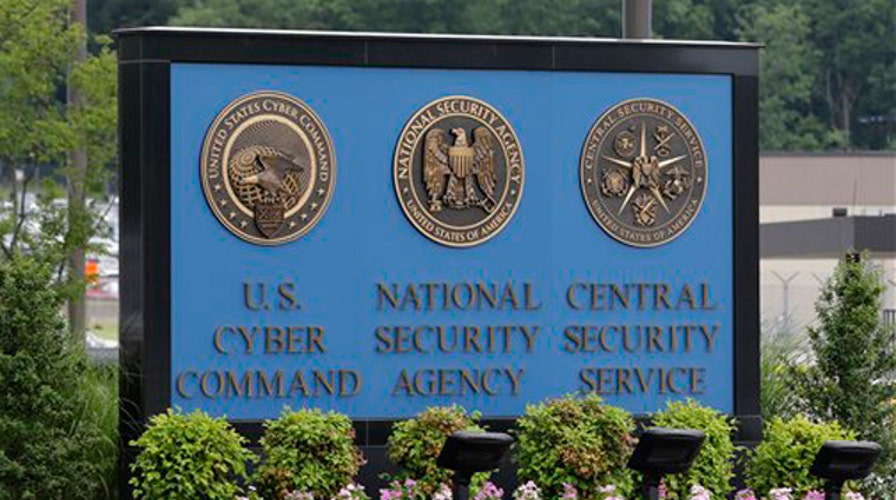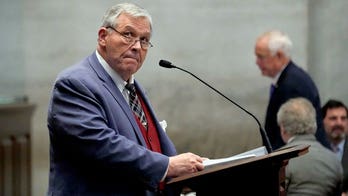NSA debate divides Republicans
Kelly Grace Gibson and Matt Keelen on the likelihood Congress finds compromise
The Obama administration warned Friday that a bundle of terror-fighting surveillance tools will expire at midnight Sunday unless Congress acts to renew Patriot Act provisions -- putting pressure on Senate Majority Leader Mitch McConnell to break the impasse over the issue.
The Senate deadlocked last weekend on a string of proposals meant to keep the provisions running past the end-of-the-month deadline. McConnell is calling the Senate back into session on Sunday, "to make every effort to provide the intelligence community with the tools it needs to combat terror," spokesman Don Stewart said Friday.
But that session leaves just hours until the deadline, and it's not clear whether any solution is in reach.
Director of National Intelligence James Clapper said in a statement Friday that the intelligence community stands to "lose important capabilities." Among the provisions that would expire is the National Security Agency's ability to search and amass Americans' phone records.
But this and other controversial provisions are the subject of an intense congressional battle that has brought the tug-of-war between privacy- and security-minded lawmakers to a head.
McConnell and his allies wanted to extend the Patriot Act for two months without making changes.
The House, though, backed a bill called the USA Freedom Act, which would have ended the NSA's bulk collection but preserved its ability to search the records held by the phone companies on a case-by-case basis. The bill was supported by President Obama and the nation's top law enforcement and intelligence officials.
However, both the House bill and McConnell's short-term extension failed to advance last weekend in the Senate -- leaving the path for addressing the expiring provisions unclear.
The most prominent critic of any Patriot Act legislation is Republican Sen. Rand Paul of Kentucky, a GOP presidential contender. Paul says voters are encouraging him to continue fighting the government's bulk collection programs.
He cheered the looming expiration in a fundraising email on Thursday, saying: "When the Senate comes back into session this Sunday, they'll have only 8 hours to pass a bill before the 'Patriot' Act expires. That means if you and I can hold the spy state off for only 8 more hours, we'll relegate the NSA's illegal spy program to the trash bin of history where it belongs."
The White House is putting heavy pressure on the Senate to work out the differences in the ranks, on an issue that has blurred traditional party lines and created odd alliances.
White House Press Secretary Josh Earnest said Friday, "There is no Plan B" to keep programs running without new legislation.
Obama on Friday blamed a "handful of senators" for the stalled legislation.
"I don't want us to be in a situation in which for a certain period of time those authorities go away and suddenly we are dark," he said. "And heaven forbid we've got a problem where we could have prevented a terrorist attack or apprehended someone who is engaged in dangerous activity but we didn't do so simply because of inaction in the Senate."
Obama argued that changes made in the Patriot Act would provide greater civil liberties protections while retaining essential law enforcement tools. He said many of the authorities that would expire are non-controversial, such as the use of so-called "roving wiretaps" that track suspects through their cell phone usage.
Clapper also renewed his call for the Senate to pass the USA Freedom Act.
House Majority Leader Kevin McCarthy, R-Calif., signaled the possibility of a fresh round of debate in both chambers. In a memo Friday, he wrote: "If the Senate does not pass the overwhelmingly bipartisan House-passed USA FREEDOM Act (H.R. 2048), further action on the expiring provisions of the PATRIOT Act may be necessary."
The Associated Press contributed to this report.





